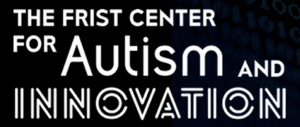By Lacie Blankenship
Despite recent public challenges to the value of diversity, equity, and inclusion initiatives in the workplace, many companies continue to recognize DEI as integral to the overall success of organizations. These topics have rightfully become central tenets of professional development conversations; however, amidst these discussions, neurodiversity, especially within working adults, is often a crucial aspect that remains overlooked. By fostering an inclusive workplace, managers not only help neurodivergent professionals reach their potential but can also see a workplace that benefits from the strengths of neurodivergent individuals.

Tim Vogus
Tim Vogus, Deputy Director, Frist Center for Autism and Innovation, and Faculty Director, Leadership Development Program, and Brownlee O. Currey Jr., Professor of Management, Vanderbilt Business, spoke at a Coaches Summit for Management Leadership for Tomorrow (MLT) in late February.
Below, we delve into some of the complexities working neurodivergent professionals face that Vogus discussed with MLT coaches who aim to support diverse leaders and equitable workspaces.
Understanding the Terms: Neurodiversity, Neurodivergent & Neurotypical
What is neurodiversity?
Neurodiversity or neurodiverse refers to a range of differences in brain function and behavioral traits and should be used when referring to groups of people, not individuals.
“It is important for people to reframe their thinking with the terminology surrounding neurodiversity,” says Tim Vogus. “The concept of neurological differences is not the same as neurological deficits.”
What is neurodivergent?
The term neurodivergent refers to an individual and means differing cognition or neurology from what is considered typical. Neurodivergence encompasses a range of neurological variations such as autism, ADHD, dyslexia, tourettes, and more.
What is neurotypical?
The term neurotypical refers to thinking, processing information, and behaving in ways consistent with social expectations and considered the norm.
Neurodivergent Adults Face Professional Challenges
 Neurodivergent professionals encounter a multitude of challenges navigating a world catered toward the neurotypical. While there are some support systems in place for youth and young adults, neurodivergent adults are often forgotten. Upon concluding education, neurodivergent individuals see a significant decline in formalized support and are often left to fend for themselves in a workforce designed on neurotypical standards.
Neurodivergent professionals encounter a multitude of challenges navigating a world catered toward the neurotypical. While there are some support systems in place for youth and young adults, neurodivergent adults are often forgotten. Upon concluding education, neurodivergent individuals see a significant decline in formalized support and are often left to fend for themselves in a workforce designed on neurotypical standards.
“The neurodiverse children who thrive with support in their youth grow up to have high unemployment rates, employment instability, and lack career growth and leadership opportunities,” says Vogus.
In the professional world, neurodivergent individuals encounter challenges from the application and interview processes onward. These workers with valuable skills often find themselves misunderstood when communication issues arise due to differences in information processing and interpretation or overwhelmed due to sensory sensitivities, such as bright lights and background noise, or unwritten social expectations, like navigating small talk and office politics. These obstacles can create feelings of isolation, anxiety, and a felt need to mask differences in ways that can cause burnout, ultimately impeding professional growth and success in the workplace.
Prioritizing Inclusion and Accommodations
In his presentation, Vogus carefully pointed out that different ways of thinking bring unique strengths to teams. For example, common strengths associated with autism include concentration, fine detail processing, memory, honesty, and sensory awareness. Workplaces that embrace neurodiversity often see increased innovation, creativity, and problem-solving.
“There’s this untapped pool of talent and innovation that the world misses out on because we don’t create sufficient space and properly support people who think and process the world differently,” says Vogus.
Role of Managers in Supporting Neurodivergent Professionals
Managers are pivotal in creating an inclusive workplace where neurodivergent professionals can thrive. It starts with a deep awareness and understanding of neurodiversity, recognizing that each person requires some level of customization that allows them to showcase their unique strengths and minimize challenges. One simple step managers can take is being clear and explicit about tasks and relational expectations on the job. Oftentimes, neurotypical managers misinterpret the actions of their neurodivergent employees as “poor fit” or “too gruff” because the manager has insufficiently set expectations and left what makes a good employee tacit. As such, it’s essential for managers to educate themselves and their teams about neurodiversity, fostering a culture of psychological safety.
 This environment is necessary for people to feel safe disclosing diagnoses, challenges, and opportunities for growth. Communication is key in this regard, as it allows managers to identify their specific needs, and tailor support accordingly. By creating inclusive work environments where people feel valued and respected, managers can help unlock the full potential of their team.
This environment is necessary for people to feel safe disclosing diagnoses, challenges, and opportunities for growth. Communication is key in this regard, as it allows managers to identify their specific needs, and tailor support accordingly. By creating inclusive work environments where people feel valued and respected, managers can help unlock the full potential of their team.
“There are a lot of simple changes employers and managers can implement that lead to the robust success of neurodiverse professionals, and organizations as a whole,” says Vogus.
Rethink Expectations & Leverage the Strengths of Neurodiverse Workers
When supporting the employment of neurodivergent professionals, it’s crucial for hiring teams, managers, and workplace leaders to rethink their expectations and approach.
For the hiring process, Vogus discussed ideas like providing interview questions in advance and asking for work samples or providing exercises for candidates to ensure they have the skillset needed for the job, instead of relying on traditional interview processes. Candidates can be more fairly evaluated on their ability to perform a job based on displays of their work rather than verbal explanations. After all, workplaces should aim to hire those who can do the job, not those who can talk about the job.
Other accommodations Vogus mentioned included separating unnecessary soft skills from role expectations and offering environmental changes depending on the employees’ needs like remote work, private workspaces with no windows, noise-canceling headphones, alternative communication methods, etc.
 When interpersonal collaboration is required, both parties to the interaction (neurotypical and neurodivergent) need to clarify their expectations and preferences. When these expectations and preferences are not explicit, misunderstandings about role duties and performance often follow. One MLT coach chimed in at this point of the discussion to share about a neurodivergent manager finding success due to the clear expectations of how they should communicate with their team. In environments where neurodivergent employees do not receive clear expectations, they may not have the same opportunities for professional advancement.
When interpersonal collaboration is required, both parties to the interaction (neurotypical and neurodivergent) need to clarify their expectations and preferences. When these expectations and preferences are not explicit, misunderstandings about role duties and performance often follow. One MLT coach chimed in at this point of the discussion to share about a neurodivergent manager finding success due to the clear expectations of how they should communicate with their team. In environments where neurodivergent employees do not receive clear expectations, they may not have the same opportunities for professional advancement.
Learn more about removing barriers to success for neurodivergent workers here.
Training and Education for Managers
Workplace diversity training for professionals should include education on neurodiversity. Learn more about educational opportunities and ongoing research at the Frist Center for Autism and Innovation.
 At the Frist Center, engineers, business scholars, and disability researchers unite with experts in neuroscience and education to understand, maximize, and promote neurodivergent talent. The Center takes a strengths-based approach (as opposed to deficit-based) to understanding autism and neurodiversity. The Center offers employment readiness training, employment opportunities, employment coaching, and innovative technology that helps redesign the workplace to be more accepting and inclusive to neurodivergent professionals.
At the Frist Center, engineers, business scholars, and disability researchers unite with experts in neuroscience and education to understand, maximize, and promote neurodivergent talent. The Center takes a strengths-based approach (as opposed to deficit-based) to understanding autism and neurodiversity. The Center offers employment readiness training, employment opportunities, employment coaching, and innovative technology that helps redesign the workplace to be more accepting and inclusive to neurodivergent professionals.
“At the Frist Center, we focus on filling the gaps and aim to make it so our world doesn’t miss out on the unique strengths and abilities of neurodivergent individuals,” says Vogus.